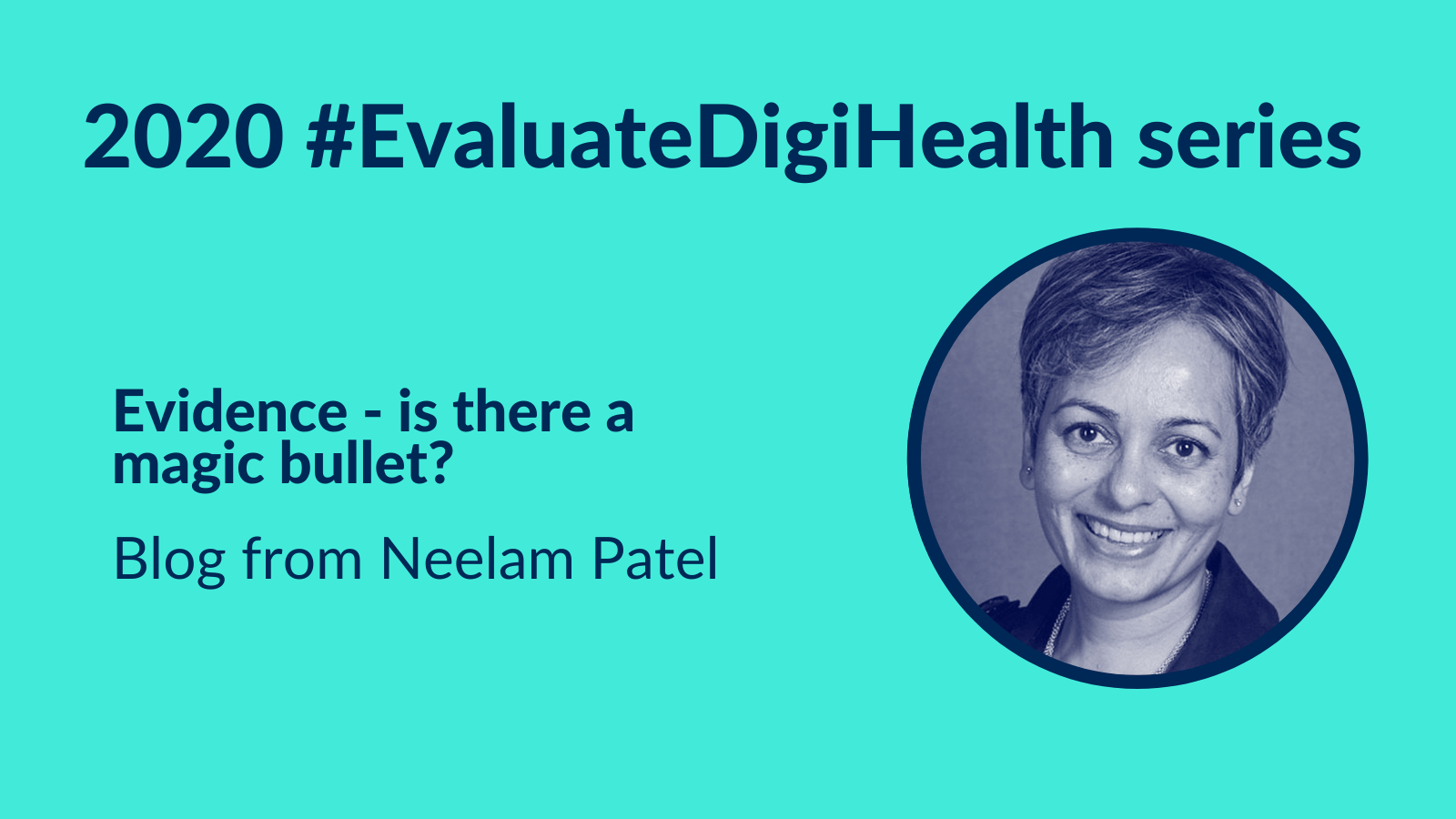
Blog: Evidence – is there a magic bullet?
MedCity is all about simplifying access to the ecosystem for innovators. One very important area that we are passionate about is equipping companies with the knowledge of how generating good evidence can be a tool to enable adoption and market access. We were delighted therefore, to partner with colleagues at UCL, the Health Innovation Network, and DigitalHealth.London to present a series of interactive webinars on evidence generation for digital health.
I spoke to some of the SMEs that attended the webinar to share their reflections on the most important learnings…
I have known Elliott Engers, CEO at Infinity Health from working with him and Jo Garland in cohort 2 of DHLA, and from day one they have been totally engaged in the importance of evidence generation and how best to achieve it. Their technology – Infinity – is a digital platform making a real difference to health and care staff, helping them to log, share and coordinate daily care tasks in real-time. As the innovation supports the healthcare system pathway and does not relate directly to patient care, Elliott and his team have focused on using evidence to emphasise the technology’s efficiency and productivity.
Elliott attended the first webinar in the series, Can we move beyond regulation stifling innovation?, and what he found most valuable was the overall awareness and positioning of evidence from a company point of view. In particular, the value of qualitative evidence to bring the user experience to life. This is something that quantitative data alone will not do and has been so important in demonstrating the value that Infinity brings to healthcare staff beyond increasing productivity. I totally agreed with Elliott when he said that evidence is not only important to convince payers and sales, but it is vital also to build a better company, to test assumptions, and to learn from them. Spot on.
It was a pleasure to also speak to Katerina Spranger, CEO Oxford Heartbeat. Oxford Heartbeat is an exciting healthcare start-up that has developed an innovative medical device software to support surgeons in the planning of high-risk brain stenting procedures. PreSize® helps surgeons visualise patient anatomy, simulate and test stent behaviour, and select the best fit stent for the patient. They recently won the prestigious NHSX AI in Health and Care Award.
The webinars were extremely timely for Oxford Heartbeat as, after four years of hard work, they are now in the process of designing their first real-world trial of PreSize®, with a pilot across several NHS hospitals. For Katerina, the webinars have re-affirmed Oxford Heartbeat’s approach to co-innovation:
“The webinars reinforced our understanding of how innovation should be done – it was great to hear that the co-development approach is really vital and aligned with the NHS design principles, and to know that we are on the right path.”
For Katerina, a biomedical engineer by background, it’s been crucial to engage clinicians in designing the technology from the outset:
“I knew there was a problem to be fixed, we just needed to understand the best ways to bring and translate our ideas to the clinicians who would ultimately be using the technologies. The first nine months of the company were mostly spent speaking to clinicians. We interviewed 34 surgeons and that gave us a mindset for co-designing that we have carried through our journey.”
Relationships with clinicians take time to nourish and it’s great to see that after all these years these same clinicians continue to be part of the company’s work.
The webinars also helped Katerina make some final practical decisions around the trial process and protocols. Her main takeaways included the importance of incorporating the hardcore technology metrics like cost benefit, along with softer ones like user experience. As a result, Katerina and her team are exploring the implementation of qualitative metrics to capture UX and UI feedback into the trial, as well as continuous improvement of the software interface to make it as easy to use as possible. Finally, the strategy is to start from the product’s core and most essential functionality, achieving excellence there, before bringing in more sophisticated feature extensions later.
Some great advice from two forward-thinking companies that perhaps provide some ‘magic bullet’ answers to questions that other companies are reflecting on.
Find out more
Find out more about the 2020 #EvaluateDigiHealth series, and watch all four webinars on-demand here.
Sign up for the 2021 webinars here: http://digitalhealth.london/our-work/generator/